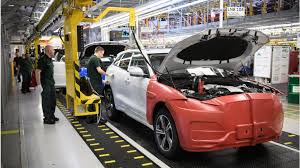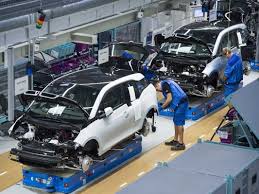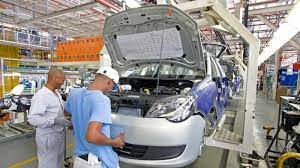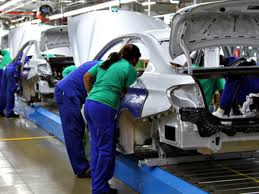



The local motor industry is accepted by all as a cornerstone of the economy as a well-organized sector. It has grown over the years, while general manufacturing has shrunk. Government is committed to ensuring that this sector grows and develops. Starting an automotive business does not necessarily require experience in this field, although it is helpful. Above all, you should have a passion for cars. In some parts of the automotive aftermarket, there is a significant advantage in purchasing a franchise rather than going it alone. There could be a high standard of technological innovation required or benchmark standards for quality, reliability and performance that have taken an established brand many years to work towards. As with all franchising businesses, the greatest benefit is the opportunity to be be your own boss without the risk involved in starting your own business. Bear in mind that most automotive franchise businesses involve a busy atmosphere and a lot of interaction with people, so this kind of environment should suit your personality. Picking the right opportunity comes down to what you want out of the business, so be sure to do thorough research into the options available and also scrutinize the franchise document of the business you are keen to invest in. A successful franchise requires demand from the market, the ability to attract and retain customers and, but not least, a good location.
WHO ARE YOUR CUSTOMERS?
At some time during the life of a vehicle, various parts are going to wear out and will need replacing or fixing. Operators in the auto aftermarket look to supply the solutions either by targeting consumers directly, or by supplying independent workshops and specialist repairers, garages, fleet operators, or retail and wholesale parts stores.. No matter the client, the focus is always on keeping their vehicles on the road, and finding a quality, cost-effective solution to any problem that arises. The automotive industry is not going anywhere soon. As the trend continue, there will be both old and new business prospects on offer, so it’s worth keeping abreast of the market to spot any gaps. At the end of the day, as long as people drive cars, there will be a demand for maintenance, repairs and body service, and an array of opportunities for potential auto-entrepreneurs.
WHAT YOUR CUSTOMERS WANT?
To set your business apart in this highly competitive marketplace, operators should pay special attention to customer needs and provide customer service levels above expectations. The good name of the industry has been tarnished over the years by fly-by-night operators and dodgy dealers looking to cut corners by supplying inferior parts. Know your products so that you can speak knowledgeable to your customers and steer them in the right direction if they ask your advice. Develop clear procedures that all employees must adhere to when dealing with customers – from greeting them to how to handle complaints. This will all help to create and establish relationships with your customers that will hopefully not only result in a purchase, but will see them coming back time and time again. Extra touches can make all the difference and will influence how your customers view your business. So, after the repairs or service has been carried out; return the seats to their correct positions, and make sure that the car is clean. Stock control is important too. By ensuring you have the right parts on hand you will be able to provide a quick and effective service.
HOW TO START YOUR CAR REPAIR BUSINESS
If you’re mechanically inclined and skilled at troubleshooting mechanical malfunctions in automobiles, you may be interested in starting your own small car repair business. By having the knowledge and abilities for car repair work, the most significant needs of such a business are already met. The steps that remain are mainly organizational and administrative tasks.
1. Scope
Determine the scope of your business. Some mechanics specialize in particular types of automobile repair. Consider whether or not you wish to limit your business to what you’re most skilled at or prefer to do and open it up to all types of repairs. For example, some repair businesses specialize only in transmission work or engine rebuilds. Some shops do only oil changes and basic tune-ups. Other shops work exclusively on exhaust issues or brake systems. However, many individual mechanics who own their own businesses choose to work on all types of issues.
2. Business Plan
Write a business plan that not only includes the scope and direction of your business, but also provides detailed information about financing, number of employees, planned operating hours, plans for supply/parts ordering and any other details that show your garage will be a viable business. If you are having trouble with this step, make use of a reliable and competent consultant that can assist.
3. Permits
Be sure to acquire all necessary permits in order to open a shop. These will vary from region to region, so you’ll need to investigate local laws and make sure you’re covered with all the permits you need.
4. Location
Find a suitable location for your car repair business. If you already have a garage set up that suits your initial purposes for start up, don’t relocate your business. However, if your location doesn’t suit your needs in size, (drive by traffic counts) or any other aspects, consider moving to a new spot. Your new location should be accessible for customers, provide a waiting area and a restroom they may use, and have enough room for you to work and store your tools.
5. Organizing
Organize your garage to fit your needs. Create proper storage for your tools and supplies, along with an organized parts room for spare parts. If you need additional tools or new equipment for your new business to function efficiently and effectively, purchase them. Be mindful of your budget and do not exceed it with extravagant and unnecessarily items.
6. Office
Establish an office for your business. Set it up so that you can keep detailed records about your customers, jobs and billing. Keep in mind that not only do you need a functional accounts receivable bookkeeping system, but you also have to have a reliable accounts payable system. Purchasing accounting software, a computer, telephones, filing cabinets and other office tools that will help you keep things organized.
7. Marketing
Create a flyer with your business name, address and contact information. Hang the flyer up around town on free bulletin boards, hand it out at a parade and distribute it as a insert with your newspaper or local free shopper, if your budget allows. Advertise on the radio and in the newspaper. One cost-effective way to advertise is to buy an add in the classified section.
8. Stay Current
Stay current on auto repair. As new makes and models of vehicles come out every year, the technology for them increases more and more. If you stay up to date by attending workshops and reading material about the new technology, you help to ensure you are able to work on new vehicles, as well as older ones.